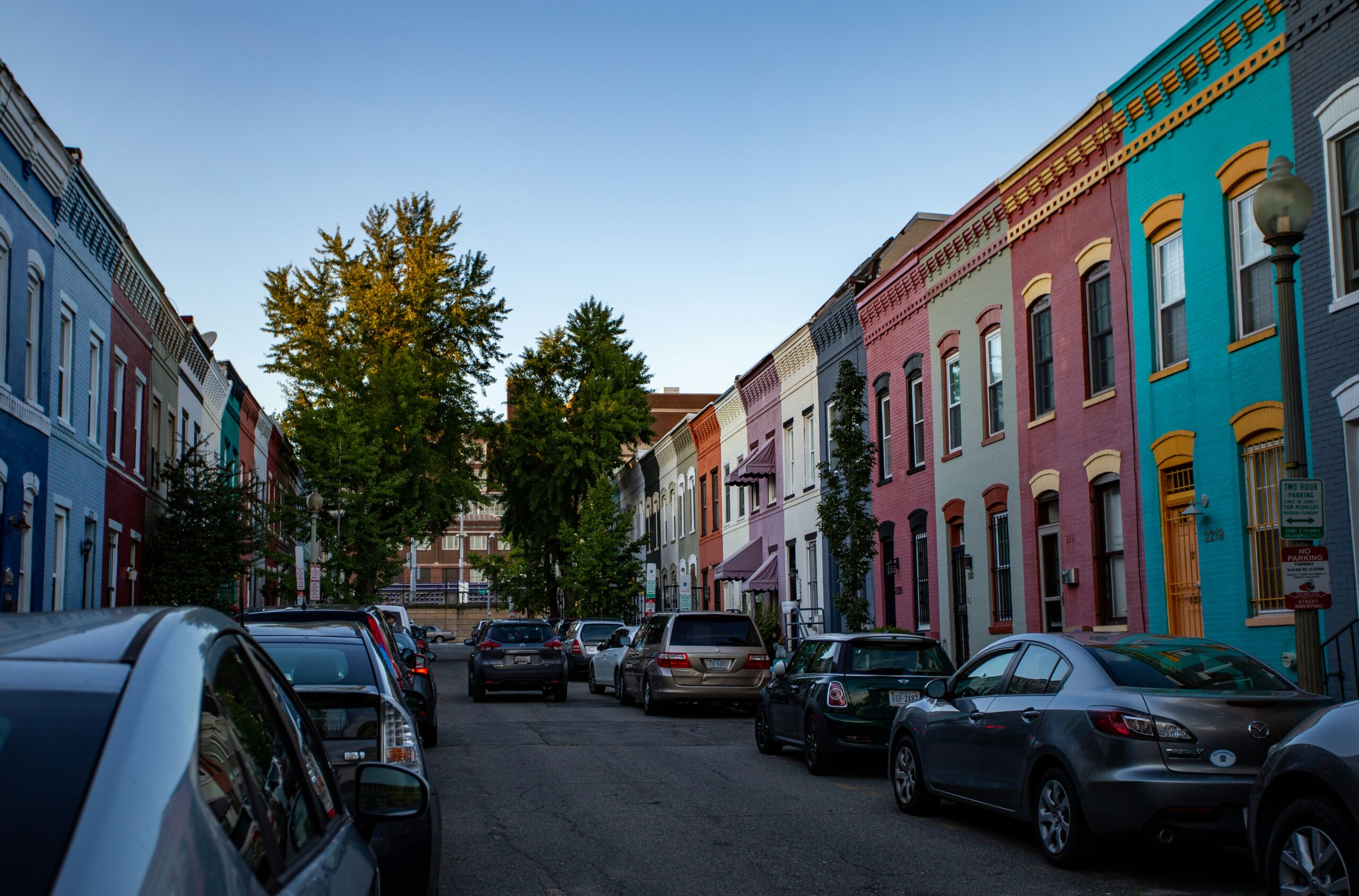On February 25, 2025, Director of Policy and Research Emilia Calma testified before the DC Council Committee of the Whole Performance Oversight Hearing. Her testimony focused on housing as an economic development tool for the District and the benefits of increasing density and lowering barriers to housing development. Read the testimony below, or download a PDF copy.
Good morning, Chairperson Mendelson and members of the Committee.
My name is Emilia Calma and I am the Director of Research and Policy at the D.C. Policy Center, an independent nonpartisan think tank advancing policies for a strong, competitive, and vibrant economy in the District of Columbia. I am speaking today about the need to incentivize new housing development in D.C.
Housing production is more important than ever
D.C.’s economic growth has long been fueled by job opportunities, attracting new residents and driving population in the past few decades. But this is changing. Domestic in-migration has turned negative 1 and D.C.’s economy is lagging behind the national average.2 The rise of remote work and uncertainty surrounding the federal workforce mean D.C. can no longer count on the same economic drivers that powered its growth in the past. If the city wants to remain vibrant and competitive, it needs to rethink its economic development strategy—and that starts with housing. Housing is a critical driver of economic growth, fiscal stability, and ability to attract and retain residents.3
This is especially important at a time when the city’s economic momentum has stalled and revenue growth is stagnant. Historically the city has relied on subsidies to create affordability, but that approach is no longer financially viable. Instead, the key to revitalizing D.C.’s economy lies in significant increases in housing production.
The DC Office of Planning (OP) and the DC Office of Zoning (OZ) play critical roles in shaping the city’s land-use policies and regulatory framework. To allow for greater housing production, these agencies should implement a range of reforms aimed at increasing density, streamlining approvals, and modernizing zoning regulations.
How can D.C. incentivize new housing production?
One key approach would be to expand by-right zoning for multi-family housing in more areas of the city, particularly in transit-accessible neighborhoods. Currently, much of DC is zoned for low-density residential use, limiting the potential for new housing construction. The Office of Planning should propose amendments to the Future Land Use Map (FLUM) and the Comprehensive Plan to allow for more density in single-family zones. Additionally, OP should eliminate or reduce minimum parking requirements, minimum lot sizes, and zoning-imposed height limits, which often make housing projects more expensive and less feasible.
The Office of Zoning should take steps to streamline the approval process for new housing projects that require zoning adjustments. Many projects currently require time-consuming special exceptions or Planned Unit Developments (PUDs), which add uncertainty and delay. By shifting more housing types into matter-of-right categories and reducing the need for discretionary approvals, OZ could accelerate housing production. Another reform could involve reducing community opposition barriers. While public input is important, excessive delays from advisory neighborhood commissions (ANCs) and appeals can slow down much-needed projects.
Additionally, historic preservation regulations could be altered to allow for greater density. Working with D.C. Council to enact the Housing Capacity Preservation Amendment Act of 20254 would help stop historic preservation review boards from reducing housing density more than is already restricted by zoning codes for new construction. Second, historic preservation review boards should allow for additional units to be built in existing structures by allowing alterations and additions to buildings and residential properties.
Through a combination of zoning reforms, process streamlining, and reducing regulatory barriers, OP and OZ could significantly boost D.C.’s housing supply, helping to ensure the District’s economic future.
Thank you for your time. I look forward to answering any questions you may have.
Endnotes
- Burge, D. (2025, January 10). Chart of the week: While the district’s population grew for the third consecutive year, two key indicators remain concerning. D.C. Policy Center. https://www.dcpolicycenter.org/publications/chart-of-the-week-while-the-districts-population-grew-for-the-third-consecutive-year-two-key-indicators-remain-concerning/; Burge, D. (2024, April 5). Chart of the week: Between 2022 and 2023, population growth in lower-cost metro areas outpaced D.C. and other pricier metro areas. D.C. Policy Center. https://www.dcpolicycenter.org/publications/chart-of-the-week-population-growth-in-lower-cost-metro-areas-outpaced-dc/
- Chart of the week: Since January 2023, D.C. has lagged the nation in total private and total nonfarm job growth. D.C. Policy Center. (2024, May 3). https://www.dcpolicycenter.org/publications/chart-of-the-week-dc-lags-in-total-job-growth/
- Trueblood, A. (2024, July 31). Housing for workforce is a key economic development program. D.C. Policy Center. https://www.dcpolicycenter.org/publications/housing-for-workforce-is-a-key-economic-development-program/
- B26-0008 – Housing Capacity Preservation Amendment Act of 2025. DC Legislation Information Management System. https://lims.dccouncil.gov/Legislation/B26-0008
